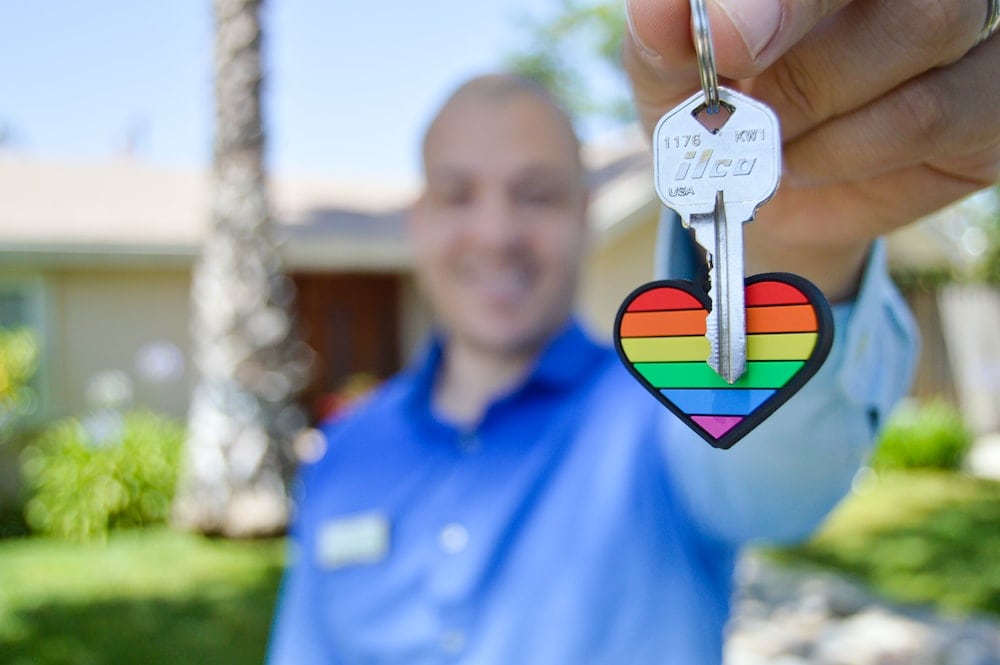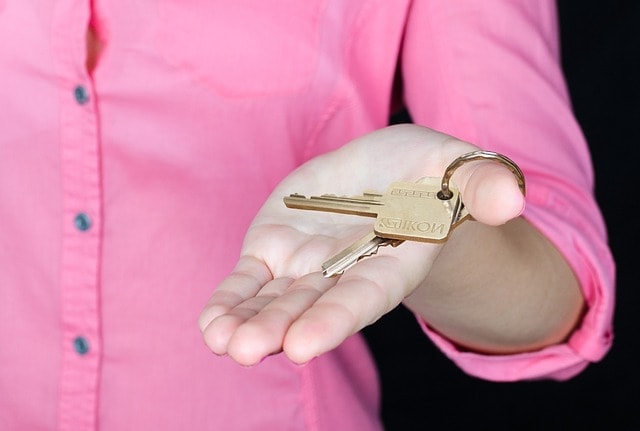
Renting a property in Las Vegas comes with its own set of legal obligations, especially when it comes to security deposits. Nevada security deposit laws exist to protect both tenants and landlords, ensuring fair handling of funds throughout the lease period. In this article, we’ll walk through security deposit limits in Las Vegas, explain how Nevada law requires landlords to manage these funds, and help tenants avoid legal disputes over their deposits.
What Is a Security Deposit?
A security deposit is a sum of money that a tenant pays to a landlord before moving into a rental unit. This deposit serves as a safeguard for the landlord in case the tenant fails to pay rent or causes damage beyond normal wear. Nevada landlords often require both a security deposit and first month’s rent upfront. However, Las Vegas rental property laws place limits on how much a landlord can charge and dictate how these funds should be handled.
Maximum Security Deposit Limit in Las Vegas
Under Nevada law, landlords cannot charge more than three times the monthly rent as a security deposit. For instance, if your monthly rent is $1,000, the maximum security deposit would be $3,000. This includes any nonrefundable security deposit for cleaning costs or other purposes. It’s essential to understand this limit to avoid paying an excessive deposit when signing a lease agreement.
Handling Security Deposits: Landlord Obligations
Las Vegas landlords must follow specific rules when managing security deposits. Nevada law requires landlords to:
Provide a Signed Written Receipt: Upon receiving the tenant’s deposit, landlords must issue a signed written receipt for the amount.
Hold Deposits in a Separate Bank Account: Security deposits should not be mixed with personal funds. Instead, landlords must place them in a separate bank account to ensure proper handling.
Return Deposits Promptly: After a tenant leaves the rental unit, landlords have 30 days to return the full deposit or provide an itemized statement of deductions.
Failure to follow these steps could result in legal disputes and potential liability for the landlord. If a landlord refuses to return a deposit or makes unreasonable deductions, the tenant can take the matter to small claims court.
Common Reasons for Security Deposit Deductions
Under Nevada security deposit laws, landlords can only deduct for specific reasons:
Unpaid Rent: If the tenant fails to pay rent, the landlord can use the deposit to cover the rent owed.
Repairing Damages: Landlords can deduct for tenant damages beyond normal wear and tear, such as broken plumbing fixtures or holes in walls.
Cleaning Costs: Cleaning costs are deductible if the rental unit is left excessively dirty, but landlords cannot charge for regular cleaning due to normal wear.
The landlord must provide an itemized written accounting of any deductions, detailing reasonable costs for each item. Tenants should receive this along with any remaining portion of their deposit within 30 days of moving out.
Tenant’s Rights and How to Avoid Legal Disputes
Nevada law protects tenants from unfair security deposit practices. Here’s how tenants can safeguard their rights:
Document the Condition of the Rental Unit: Before moving in, take photos and videos to document the property’s condition. This will help avoid disputes over tenant damages when the lease ends.
Provide a Tenant’s Present Address: Ensure the landlord has your current address to return your deposit or send an itemized statement.
Request a Signed Written Receipt: Always ask for a requested receipt when paying a security deposit to ensure there’s proof of payment.
Respond to Deductions: If a tenant disagrees with any deductions, they can submit a written response disputing the charges. Landlords must consider this response before finalizing deductions.
If a landlord acted in bad faith or failed to return the deposit without proper cause, tenants can take legal action to recover the amount. In some cases, tenants may also recover legal fees if they win the case.
What Happens if the Rental Property Changes Owners?
If a Las Vegas rental property changes hands, the new owner inherits the responsibility of the tenant’s security deposit. Nevada law requires the previous owner to transfer the deposit to the new owner or refund it to the tenant. If a tenant’s deposit is not handled correctly during this transition, they can take the issue to a credit reporting agency or small claims court.
Tips for Landlords to Foster Positive Relationships
Handling security deposits correctly not only avoids legal disputes but also fosters positive relationships with tenants. Here are a few best practices for landlords:
Provide Clear Lease Agreements: A well-drafted lease or rental agreement should outline security deposit terms to avoid confusion.
Communicate Deposit Deductions: Providing an itemized statement and clear explanation of deductions can prevent tenant disputes.
Be Transparent About Normal Wear: Clearly define what counts as normal wear to avoid disagreements over cleaning costs or repairs.
FAQ: Security Deposit Laws in Las Vegas Rental Properties
What happens if my landlord fails to return my security deposit on time?
If your landlord fails to return your security deposit within 30 days or provide an itemized statement of deductions, you have the right to take legal action. You can file a claim in small claims court to recover the deposit. If the landlord’s conduct is deemed unreasonable, you might also be entitled to legal fees.
Can my former landlord deduct costs for cleaning from my deposit?
A landlord can only deduct cleaning costs if the rental unit is excessively dirty. However, charges for normal wear and tear or routine cleaning are not allowed. If you disagree with the deductions, you can request an itemized breakdown and challenge the charges.
What is a surety bond, and can it be used as a security deposit alternative?
A surety bond is an alternative to a traditional security deposit. It involves purchasing a bond from a third-party company, which acts as a guarantee for the landlord in case of damage or unpaid rent. In Las Vegas, landlords may accept a surety bond instead of a cash deposit, but tenants must provide written notice and obtain the landlord’s consent before using this option.
How can I ensure that my security deposit is protected when my landlord changes?
If your landlord transfers ownership of the property, the new landlord must honor the security deposit terms, either by refunding the deposit to you or transferring it. You should request written confirmation of the deposit transfer and follow up to ensure it is handled properly.
What should I do if I need to move out early and want my security deposit back?
If you need to leave before the end of the lease, you may be able to receive your deposit back if the property is in good condition and you’ve followed the terms of the lease. Some leases may include penalties for early termination, but you are still entitled to a full accounting of any deductions made.
Can my landlord deduct for unpaid rent from my security deposit?
Yes, landlords can use the deposit to cover unpaid rent. If you leave before your lease is up, the landlord may deduct rent owed for the remainder of the lease term. However, any deductions must be reasonable and documented.
What happens if I abandon the rental property without giving notice?
If you abandon the property without informing your landlord, they may deduct costs from your security deposit for any damages, cleaning, or unpaid rent. Make sure to provide written notice of your intent to move out to avoid complications.
Do I have to pay last month’s rent separately from my security deposit?
Yes, the last month’s rent is usually paid separately from the security deposit. While the security deposit covers potential damage or unpaid rent, the last month’s rent is typically part of the standard rent payment schedule.
What can I do if my landlord makes unreasonable deductions from my security deposit?
If you believe your landlord’s deductions are unfair, you can request an itemized statement that explains each charge. If the deductions seem unreasonable, you can dispute them by providing evidence, such as photos of the property’s condition when you moved out.
How does property management affect my security deposit?
Property management companies must follow the same rules as individual landlords when it comes to security deposits. If you are renting from a property management company, you should still receive a signed receipt for your deposit, and the management must follow Nevada law for returning the deposit within 30 days.
Can a tenant personally handle security deposit disputes?
Yes, tenants can personally address security deposit disputes by communicating directly with the landlord. If resolution is not possible, tenants may seek legal action through small claims court or involve a legal professional to ensure their rights are protected.
How can I avoid security deposit disputes with my landlord?
To avoid disputes, document the condition of the property before moving in, request receipts for any payments, and maintain good communication with your landlord. If possible, negotiate any lease terms or security deposit conditions in writing before signing the lease.
Conclusion
Security deposit laws in Las Vegas aim to protect both tenants and landlords. By understanding Nevada security deposit laws, tenants can safeguard their rights, and landlords can ensure they handle security deposits properly.
If you encounter issues with your security deposit or face a property dispute, Bourassa Law Group can help you navigate your tenant’s rights under Nevada law.
Contact us today for a free consultation and let us help you achieve justice.





